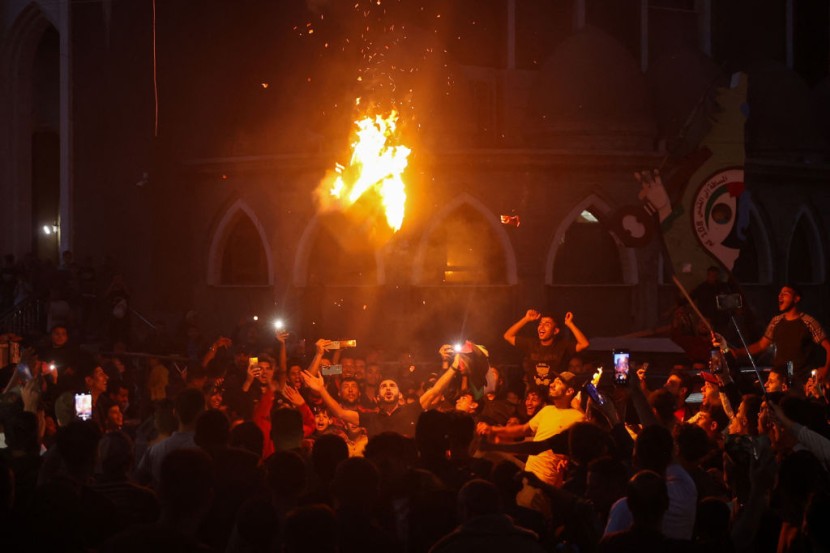
Israeli forces began striking targets in the southern Gaza city of Rafah on Monday after the country's leaders approved a military operation there following months of threats.
The attack came hours after Hamas said it had accepted a ceasefire proposal from Egypt and Qatar, but Israeli Prime Minister Benjamin Netanyahu's office said the deal was "far from Israel's essential demands," the Associated Press reported.
"The war cabinet unanimously decided that Israel continue the operation in Rafah to exert military pressure on Hamas in order to advance the release of our hostages and the other goals of the war," a statement from Netanyahu's office said.
Israel said, however, that it would send negotiators to continue talks on a ceasefire agreement.
The Israeli military said it was conducting "targeted strikes" against Hamas militants in eastern Rafah, AP said.
Israel forces hit the city from the air and ground, according to Reuters.
A live video on the AP website showed people milling about in front of a large building in Rafah and loud booms could be heard before the feed stopped.
Hamas said it had accepted the ceasefire deal hours after Israel ordered Palestinians to evacuate neighborhoods in eastern Rafah, signaling that an invasion could be imminent.
Israeli and U.S. officials told CNN that the agreement approved by Hamas was different from one that Israel helped craft more than a week ago.
"It incudes a permanent end to hostilities, which is a red line for Netanyahu," a senior U.S. official said.
Benny Gantz, a former Israeli military chief of staff who serves in Netanyahu's War Cabinet, also said the Hamas offer "does not correspond to the dialogue that has taken place so far with the mediators and has significant gaps," according to CNN.
An Israeli official also told Reuters that it "would appear to be a ruse intended to make Israel look like the side refusing a deal."
An official briefed on the peace talks disputed those characterizations, saying that the Hamas offer was effectively the same as one that Israel agreed to at the end of April, Reuters said.
A U.S. official familiar with the negotiations also told Reuters that Netanyahu and his War Cabinet "have not appeared to approach the latest phase of negotiations in good faith."
Netanyahu has been threatening to launch a ground invasion of Rafah in pursuit of his plan to destroy Hamas for its Oct. 7 attacks against Israel, which killed about 1,200 people.
About 250 people were also kidnapped, of whom about 130 have yet to be freed.
More than 1 million Palestinians are believed to be sheltering in Rafah from the combat that has reportedly killed 34,500 people in Gaza since Hamas attacked Israel on Oct. 7, killing about 1,200 people and kidnapping about 250.
About 130 hostages have yet to be released.








